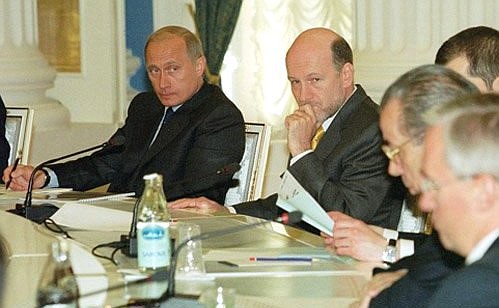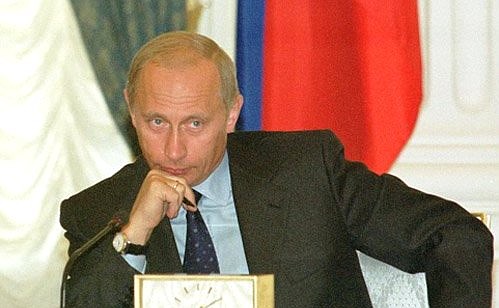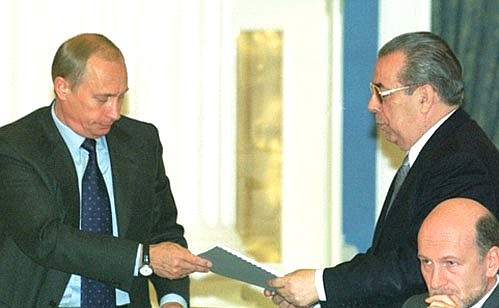Relevant issues of Russian social and economic development were discussed.
The President noted that Russia had to transfer the new quality of relations with the West into economic benefits for the country. He said some successes, notably in the energy market, had already been achieved.
The President urged the need to form a clear-cut, sustained and truly effective policy regarding the bankruptcy of insolvent enterprises. He said that replacing an ineffective owner is a natural and necessary procedure, but today that concept has been so “perverted” that there is absolutely no public trust in it.
The head of state said he wanted to hear the opinion of business representatives on the package of tax laws submitted by the Government to the State Duma and proposed that those present work together on how to structure the budget expenditures considering that 2003 would be a difficult year financially because it would see the peak of Russian payments of its debts to the West.
Mr Putin admitted that it would be difficult to determine the budget structure, especially on the eve of the parliamentary elections. Considerations of political expediency must not influence economic decisions, he said.
Noting that the visit of the US President to Russia was about to begin, the President said that economic relations would have a main place in his discussions with George Bush. One of the issues is the recognition of Russia as a country with a market economy. The President described the decision of the US Senate to preserve the Jackson-Vanik amendment as strange. President Putin noted that in the US those who viewed the relations with Russia not as American-Russian, but American-Soviet still wielded considerable influence.
Vladimir Putin also expressed concern over the introduction by the European Union of prohibitive duties on grain exports from Russia.
Present at the meeting were Government Chairman Mikhail Kasyanov, Chief of Staff of the Presidential Executive Office Alexander Voloshin and Presidential Adviser Andrei Illarionov.


